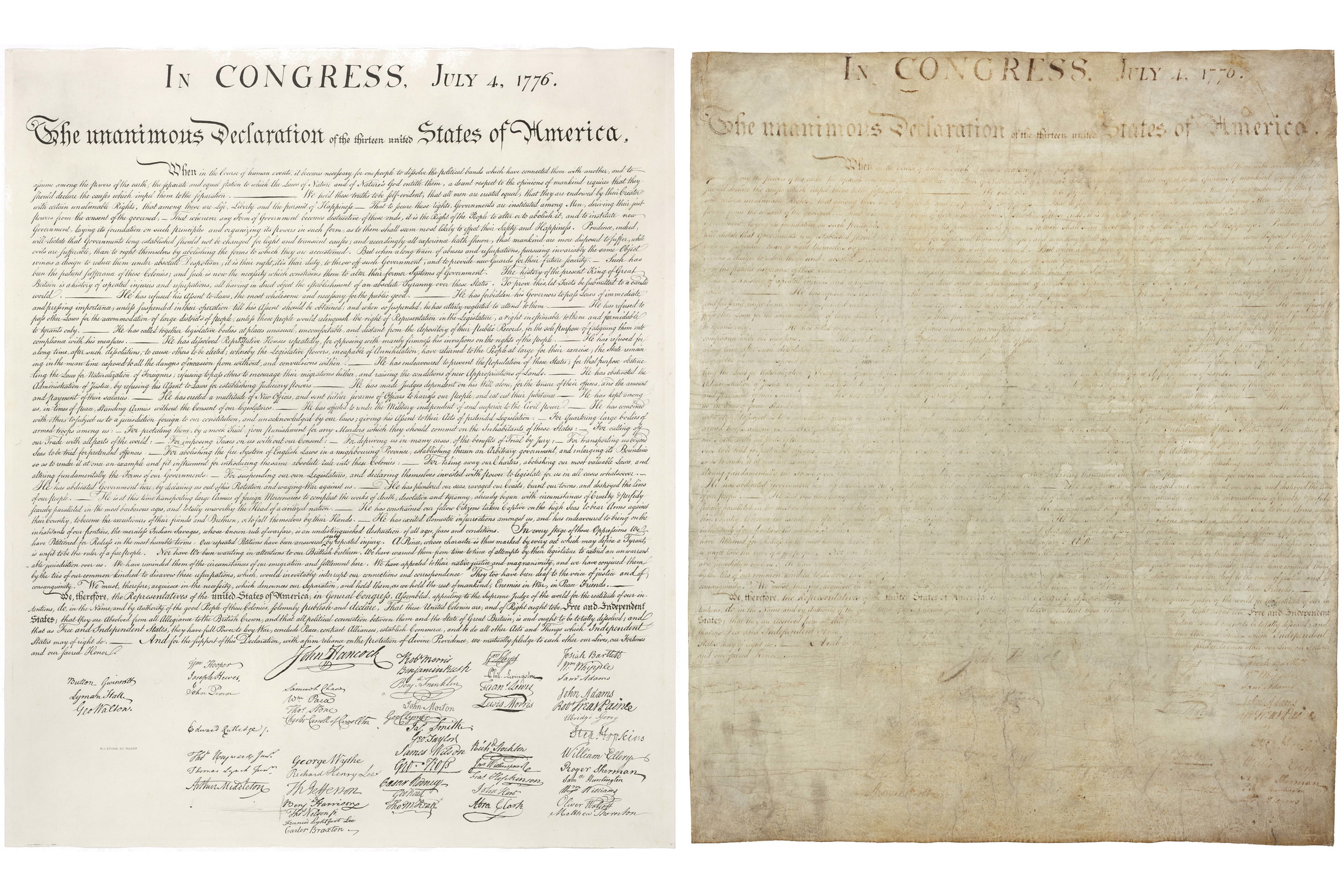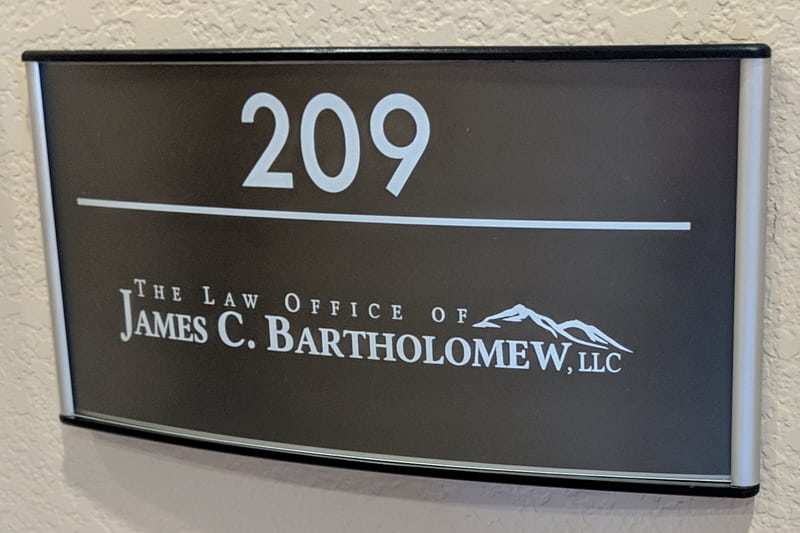News
-
Specialty Assets and Special Needs

When is a specialized trust necessary? What happens to your assets after your death? It depends on what, if any, legal documents you have in place to direct the distribution of those assets. Generally speaking, assets can pass to beneficiaries through a few methods including intestate succession, beneficiary designations, a will, and/or a trust. Each method has its own benefits, costs, and quirks to consider when creating your estate plan. Some situations may require a specialized form of trust for assets to pass gracefully.
Certain unique assets are subject to regulations that may impact personal privacy if held in a trust. For example, a trust holding an airplane may be subject to review by the Federal Aviation Administration. A trust holding a National Forest Recreation Residence must be submitted to the United States Forest Service. For most people, submitting the details of their primary revocable living trust to these agencies, and having that trust become part of the public record, is undesirable. It may make sense or be necessary to establish an additional trust that is specific to the requirements of the appropriate agency, to hold the unique asset alone. However, this must be carefully coordinated with other revocable living trusts and your overall estate plan.
Another common, but specialized, concern comes up when a beneficiary has special needs. In order to preserve government benefits that such a beneficiary may receive, it may be necessary to structure a trust with the beneficiary’s special needs in mind. A Third-Party Special Needs Trust places restrictions on asset distribution designed to ensure the beneficiary is not disqualified from government benefits to which they are entitled. To be effective, such a trust must be carefully crafted and established in advance of your passing as a part of a coordinated estate plan.
We’ve been reviewing various methods of passing assets in past news posts, and the Oregon State Bar provides additional resources on estate planning. But if you’re wondering how all of this affects your personal situation and would like custom-tailored professional advice, please contact us now to begin exploring your estate planning options.
-
Happy Spring Break!

This week is spring break for schools here in Central Oregon and most across the state. Our office staff will be available intermittently while spending time with family—please bear with us if we cannot respond immediately to inquiries. As always, feel free to leave us a message. We wish all Central Oregon students, teachers, and families a safe, fun, and relaxing week!
-
Time to Spring Forward

Daylight Saving Time began today at 2:00 AM, so it’s time to roll your clocks forward one hour. Daylight Saving Time currently begins at 2:00 AM on the second Sunday in March and ends at 2:00 AM on the first Sunday in November.
Oregon is one of many states exploring the possibility of eliminating this semiannual switch. In 2019, the Oregon legislature passed Senate Bill 320, which would abolish the annual change and place Oregon (except for the portion of the state in the Mountain Time Zone) on permanent Daylight Saving Time. This will only go into effect if (1) our Pacific Time Zone neighbors California and Washington do the same and (2) the United States Congress acts to allow states to observe year-round Daylight Saving Time (efforts in this area, such as the Sunshine Protection Act, have seen little progress). 2024 Senate Bill 1548 would have eliminated the switch by placing the state (the portion in the Pacific Time Zone) on permanent Standard Time. This does not require an act of the United States Congress but the bill did still require coordination with California and Washington. The bill was narrowly passed by the Oregon Senate, but did not receive a vote in the House before the session adjourned. 2025 Senate Bill 566 revives this effort.
Whether you prefer permanent Standard Time, permanent Daylight Saving Time, or making the semiannual switch, today is the day to spring forward for the time being!
-
Happy Holidays!

Whatever your traditions, Bartholomew Law LLC wishes you a warm, safe, and peaceful holiday season. We hope you enjoy time with family and friends along with our beautiful Central Oregon scenery. Our Bend office will be closed while staff are home with family, but we will be pleased to help you explore your estate planning needs in the new year. In the meantime, you can contact us via voicemail, email, or webform. Happy Holidays!
-
$18,000 Annual Gift Exclusion

The holidays are a great time to remember that gifts of unappreciated property (like cash or its equivalent) below the Annual Exclusion amount are an excellent tool for tax free wealth transfer to your heirs. For 2024, the Annual Exclusion per Donee is $18,000, meaning that you can generally gift up to that amount total during 2024 per individual without estate tax consequences. For a couple, each spouse is entitled to the full Annual Exclusion amount, so a couple can together gift $36,000 to each individual child or other heir.
These exclusions can add up quickly! For example, within these limits a married couple can gift $72,000 to another married couple in 2024 without estate tax implications when structured properly. If minimizing estate tax is a priority, annual gifting can make a huge difference in the value of your gross estate down the road.
Specific circumstances vary, however, and details like whether the asset is considered a present or future interest, for instance, can make a big difference in whether what you plan to do will work as intended—so you should always consult with an attorney regarding your specific situation before making any such gifts.
Please contact us if you would like to set up an appointment to explore your options.
For more general information, see the IRS Frequently Asked Questions.
-
Revocable Living Trusts

What is a trust? What happens to your assets after your death? It depends on what, if any, legal documents you have in place to direct the distribution of those assets. Generally speaking, assets can pass to beneficiaries through a few methods including intestate succession, beneficiary designations, a will, and/or a trust. Each method has its own benefits, costs, and quirks to consider when creating your estate plan.
A revocable living trust agreement is a powerful document that can accomplish many of the goals people commonly have in estate planning—a trust can allow your beneficiaries to avoid probate, protect assets for young children, or aid in minimizing estate taxes when set up correctly. A trust is created by a “settlor” and is managed by a “trustee.” A revocable trust may be modified or revoked by the settlor during the settlor’s lifetime, unlike an irrevocable trust which cannot be modified except under limited circumstances.
A revocable living trust can hold real property, bank accounts, personal property, and many other types of assets. It functions similarly to owning those assets directly during your lifetime, while providing specific instructions for the management and distribution of those assets after your death. Much can be accomplished, but how to structure a trust and whether a trust is the right tool for you and your family depends on your unique circumstances.
We’re reviewing other methods of passing assets in past and future news posts, and the Oregon State Bar provides additional resources on estate planning. But if you’re wondering how all of this affects your personal situation and would like custom-tailored professional advice, please contact us now to begin exploring your estate planning options.
-
Happy Thanksgiving!

Whether you celebrate here in Central Oregon or travel to visit loved ones, Bartholomew Law LLC wishes you a warm, safe, and peaceful holiday. We hope you enjoy time with family and friends, sharing good food and special moments. Our Bend office will be closed for the holiday while staff are home with family, but we will be pleased to help you explore your estate planning needs upon our return on Monday. In the meantime, you can contact us via voicemail, email, or webform. Happy Thanksgiving!
-
Wills & Probate

What is a will and what is probate? What happens to your assets after your death? It depends on what, if any, legal documents you have in place to direct the distribution of those assets. Generally speaking, assets can pass to beneficiaries through a few methods including intestate succession, beneficiary designations, a will, and/or a trust. Each method has its own benefits, costs, and quirks to consider when creating your estate plan.
A will is a legal document that allows you to specify who (or what) receives your assets when you pass away. It also allows you to name the person you want to be responsible for managing the distribution of those assets, your personal representative (sometimes called an executor), who could be a trusted relative or friend or a professional fiduciary. A will is a very old legal tool, and, as such, generally requires compliance with numerous formalities for valid execution.
With just a will in place, probate, a court process like a lawsuit, is generally necessary to distribute your assets after you pass away. To start the process, the will is proven in probate court. The court will formally appoint the personal representative to manage your assets during the probate process. Notices to creditors must be published, assets are inventoried, and all debts including taxes must be paid. Once the court approves the accounting and payment of all debts and expenses, the remaining assets may be distributed to the beneficiaries named in the will. Probate can be a lengthy and expensive process. Fortunately, there are other legal tools that may substitute for a will and allow for your assets to pass outside of probate entirely—utilizing such tools and dovetailing their unique characteristics together seamlessly undergirds the comprehensive estate plans we develop for our clients.
We’re reviewing other methods of passing assets in past and future news posts, and the Oregon State Bar provides additional resources on estate planning. But if you’re wondering how all of this affects your personal situation and would like custom-tailored professional advice, please contact us now to begin exploring your estate plan options.
-
Beneficiary Designations

What happens to your assets after your death? It depends on what, if any, legal documents you have in place to direct the distribution of those assets. Generally speaking, assets can pass to beneficiaries through a few methods including intestate succession, beneficiary designations, a will, and/or a trust. Each method has its own benefits, costs, and quirks to consider when creating your estate plan.
Beneficiary designations are available for a variety of assets. The most common example is a bank account. The beneficiary designation allows you to specify who (or what) receives the asset (e.g., the contents of the account) when you pass away. Distributions to designated beneficiaries are carried out by the bank or other asset holder and do not typically require a probate court process. In many cases, this can simplify the passing of certain assets.
Beneficiary designation forms are important to fill out, as banks often have policies outlining default beneficiaries if no one is designated and these defaults may not reflect your wishes. However, it’s important to consider tax implications and other rippling consequences when making beneficiary designations as well. So while important to ensure beneficiary designations are made and kept up to date, they are best considered as cogs in the wheel of a comprehensive estate plan rather than ends in and of themselves.
We’re reviewing other methods of passing assets in past and future news posts, and the Oregon State Bar provides additional resources on estate planning. But if you’re wondering how all of this affects your personal situation and would like custom-tailored professional advice, please contact us now to begin exploring your estate plan options.
-
Intestate Succession

What happens to your assets after your death? It depends on what, if any, legal documents you have in place to direct the distribution of those assets. Generally speaking, assets can pass to beneficiaries through a few methods including intestate succession, beneficiary designations, a will, and/or a trust. Each method has its own benefits, costs, and quirks to consider when creating your estate plan.
Intestate succession dictates who receives assets from the estate of a person who dies without a will or other documents directing the distribution of those assets. Each state has its own rules governing intestate succession. These vary from state to state, but are generally designed to mimic what a ‘typical’ person would be most likely to want for their asset distribution—moving through the family tree from spouse to children to grandchildren and so on, and accounting for circumstances such as blended families, lack of descendants, community property, forfeiture of rights, and even criminal activity related to the death itself.
Intestate succession rules are applied in probate court when no will exists to dispose of a decedent's property. The probate process can be lengthy and expensive, particularly when intestate succession must be employed, but the biggest problem with intestate succession is that there really is no such thing as a ‘typical’ person. Very rarely does someone truly want their assets to be distributed exactly as the state’s formula describes.
We’ll review other methods of passing assets in future news posts, and the Oregon State Bar provides additional resources on estate planning. But if you’re wondering how all of this affects your personal situation and would like custom-tailored professional advice, please contact us now to begin exploring your estate plan options.
-
Welcome Fall

Sunday, September 22 marked the autumnal equinox in the Northern Hemisphere. At 5:44 AM (in Central Oregon) the sun was shining directly on the equator and all parts of Earth had nearly equal amounts of day and night (we wind up with a bit more daylight due to atmospheric refraction and using the top of the sun to mark both its rise and set). As Earth proceeds in its orbit of the sun, Earth’s axial tilt will place the Northern Hemisphere in decreasingly direct sunlight—the September equinox marks the beginning of astronomical fall as our days become shorter than our nights. Learn more from NOAA, NASA Space Place, National Geographic Education, or Space.com.
In Central Oregon, our latitude (44.06°N at our Bend office) means daylight will decrease from just over 12 hours today to just under 9 hours at the solstice on December 21, 2024. You can determine exact sunrise and sunset times for your precise location using the NOAA Solar Calculator. The time for each equinox and other seasonal phenomena can be found using the US Naval Observatory’s Earth’s Seasons Calculator.
Enjoy our glorious Central Oregon fall!
-
Why Estate Planning?

Why is an estate plan important? People often think actively about estate planning at two major lifetime milestones: when many people have children, they want to ensure those children are cared for if they were to die or become incapacitated; and when many people retire, they begin to examine finances closely and are often concerned with maximizing assets passed to the next generation. However, having an estate plan is important for everyone and covers lifetime situations as well as death. Your estate plan can be built to respond to a variety of motivations and cover different needs depending on your family situation and personal desires. These might include:
- Choosing the trusted relative or friend you would like to care for your minor children in the event you are incapacitated;
- Ensuring that your assets are distributed to the beneficiaries of your choice upon your death;
- Eliminating the need for your desired beneficiaries to go through probate to receive your assets;
- Protecting beneficiaries who may not yet be capable of managing inherited assets;
- Ensuring your spouse or another trusted person can act on your behalf if you become incapacitated;
- Minimizing estate taxes and maximizing the assets passed to your beneficiaries upon your death (in Oregon, the threshold for estate taxes is one of the lowest in the country at $1,000,000 in total assets);
- Ensuring your medical wishes are followed when you are severely incapacitated and near death; or
- Updating an existing estate plan after a move to account for differing state laws and regulations.
A comprehensive estate plan combines the appropriate legal tools for your unique circumstances, desires, and needs. These tools may include revocable living trusts, wills, powers of attorney, advance directives for healthcare, nominations of guardian and conservator, or other documents written to be custom-tailored to your personal situation.
Please contact us if you would like to set up an appointment to explore your options.
-
Make a Will Month

Have you received an email from your favorite charity this month? Many non-profit organizations recognize August as “National Make a Will Month” to promote legacy gifts. Whatever the motivation, as the summer winds down, it’s always a good idea to make sure your estate plan is up to date, including double-checking beneficiaries and verifying you have the right tools in place for your current situation. These tools might include a revocable living trust, a will, a power of attorney, an advance directive for health care, and a variety of other documents depending on your unique circumstances and needs.
Please contact us if you would like to set up an appointment to explore your options for a comprehensive and custom-tailored estate plan.
-
4th of July

Happy Independence Day! The first image is of the 1823 William J. Stone engraving of the Declaration of Independence commissioned by John Quincy Adams; the second, significantly faded, image is of the actual Declaration on display in the Rotunda at the National Archives Museum in Washington D.C. Learn more at https://www.archives.gov/founding-docs/declaration
-
Welcome Summer

Today is the summer solstice in the Northern hemisphere—at 1:51PM PDT, the sun will reach its northernmost position relative to the equator. This marks the beginning of astronomical summer and is the longest day of the year. Learn more from NOAA, NASA Space Place, or National Geographic Education.
In Central Oregon, our latitude (44.06°N at our Bend office) will receive 15½ hours of sunlight today. You can determine exact sunrise and sunset times for your precise location using the NOAA Solar Calculator. The time for each solstice and other seasonal phenomena can be found using the US Naval Observatory’s Earth’s Seasons calculator.
Enjoy the summer sunshine, Central Oregonians!
-
James on Estate Planning in Kiplinger

James recently spoke with and was quoted by Kiplinger reporter David Rodeck about the importance of estate planning for single retirees, particularly those without children. It’s often assumed that being single and without children makes things simpler, but it can actually prove much more complicated—and having the right documents in place can be even more critical to ensuring that what happens to you and your assets reflects your wishes.
Read the full article quoting James here.
And please contact us if you would like to set up an appointment to explore your options.
-
Central Oregon Aurora

The northern lights visited Central Oregon last night! A G5 level geomagnetic storm hit Earth on Friday and again this morning, offering Central Oregonians a rare sky show. G5 (Extreme) is the highest level of NOAA’s geomagnetic storm rating system and very uncommon—the last G5 event occurred in October 2003. This level of activity offers the opportunity to view the northern lights at much lower latitudes. The storming is likely to persist through the weekend, so we may receive another show tonight as NOAA forecasts G4 (Severe) conditions. Learn more from the NOAA Space Weather Prediction Center.
-
Arbor Month

Hug a tree, it’s Arbor Month! Arbor Day is commonly celebrated on the last Friday in April, but here in Oregon our trees get the entire month for recognition. Read the Governor’s Proclamation or learn more from the Oregon Department of Forestry.
It’s easy to find a favorite tree in the Central Oregon landscape. The Deschutes and Ochoco National Forests are at our doorstep, while Bend, Madras, Redmond, Sisters, and Sunriver are among Oregon’s numerous participants in the Arbor Day Foundation’s Tree City USA program celebrating efforts to maintain and grow urban tree cover. Wherever your favorite tree may be, we hope you can enjoy it today and everyday!
-
Earth Day

It’s Earth Day! We hope that you can celebrate our planet by enjoying the beauty of our Central Oregon landscape. If you can’t make it outside, a sampling of that local beauty can be found in our Central Oregon Moments video blog, providing peace of mind through the wonders of the regional landscape.
-
Tax Day

It’s tax day! Don’t forget to eFile or get your return in the mail (and postmarked) by the end of the day. Both the IRS and the Oregon Department of Revenue offer a variety of resources to eFile, request an extension, check your refund status, and more.
Taxes can play a significant role in estate planning, particularly here in Oregon where the threshold for the state-level estate tax is relatively low at $1,000,000. Including tax-planning provisions in your estate plan can potentially result in significant savings for your beneficiaries. Specific circumstances vary, however, so you should always consult with an attorney to determine which options best suit your goals. If you’d like to discuss how estate taxes may affect you and your beneficiaries and how a comprehensive estate plan may help to minimize the impact, please contact us.
-
Total Solar Eclipse

Today a total solar eclipse will be visible, weather permitting, across much of the eastern United States, the last total eclipse visible in the contiguous United States until 2044. Here in Central Oregon, we will see a partial eclipse. At our office location in Bend, the eclipse will begin at 10:30am, peak at 11:25am with 26.1% coverage, and end at 12:22pm. Always use appropriate eye protection when viewing an eclipse and never look directly at the sun. You can learn more from NASA and the National Solar Observatory.
If you weren’t able to make the trip east to view totality, please enjoy this throwback image from our own Central Oregon total solar eclipse experience on August 21, 2017 as viewed from Camp Sherman.
-
Beneficiary Designations

Tax season means many people are reviewing accounts, making (Roth) IRA contributions, depositing refunds, and generally tidying finances. This is a great time to verify that beneficiary designations are up to date and aligned with your estate plan on all of your accounts. Beneficiary designations can play a key role in a comprehensive estate plan, particularly for those concerned about tax implications.
Specific circumstances vary, however, and details like account type and who or what a beneficiary is can make a big difference in whether what you plan to do will work as intended—so you should always consult with an attorney and a financial advisor regarding your specific situation before including beneficiary designations in your estate planning.
Please contact us if you would like to set up an appointment to explore your options.
-
Spring Break

This week is spring break for most schools across Oregon, including our local K–12 districts (Bend-La Pine, Redmond, Sisters, Crook County, Ashwood, Black Butte, Culver, and Jefferson County), COCC, and OSU-Cascades. Our office staff are available intermittently while spending time with family—please bear with us if we cannot respond immediately to inquiries. We wish all Central Oregon students, teachers, and families a fun and relaxing week!
-
Welcome Spring

Today is the March equinox, also known as the vernal or spring equinox in the Northern Hemisphere. At 8:06 PM, the sun will shine directly on the equator and all parts of Earth will have nearly equal amounts of day and night (we wind up with a bit more daylight due to atmospheric refraction and using the top of the sun to mark both its rise and set). As Earth proceeds in its orbit of the sun, Earth’s axial tilt will place the northern hemisphere in increasingly direct sunlight—the March equinox marks the beginning of astronomical spring as our days become longer than our nights. Learn more from NOAA, NASA Space Place, National Geographic Education, or Space.com. NOAA also offers an excellent visualization.
In Central Oregon, our latitude (44.06°N at our Bend office) means daylight will increase from just over 12 hours today to 15½ hours at the solstice on June 20th, 2024. You can determine exact sunrise and sunset times for your precise location using the NOAA Solar Calculator. The time for each equinox and other seasonal phenomena can be found using the US Naval Observatory’s Earth’s Seasons calculator.
Enjoy your increasing hours of sunshine, Central Oregonians!
-
Happy Pi Day!

Call us irrational, but we love pi! March 14th is recognized by many as Pi Day in honor of the ratio of a circle’s circumference to its diameter, known as pi (𝝅). As an irrational number, pi cannot be expressed as a common fraction of whole numbers and its decimal representation goes on infinitely, but many math enthusiasts nonetheless enjoy calculating pi to increasingly numerous decimal places. Try asking a computer to compute to the last digit the value of pi and it might be occupied for a while…
𝝅=3.1415926535897932384626433832795028841971693993751058209749445923078164062862089986280348253421170679821480865132823… (for more digits)
The United States House of Representatives has periodically introduced resolutions recognizing March 14th as National Pi Day to promote math and science education (e.g., 118 H. Res. 221, 111 H. Res. 224). In an interesting legal quirk, the Indiana General Assembly considered a bill in 1897 enshrining erroneous calculations to square the circle, which would have effectively defined pi as 3.2. The bill actually passed the Indiana House before encountering brighter minds during Senate readings.
However many decimal places you can remember, enjoy the excuse for a round treat!
-
Spring Forward

Daylight Saving Time began today at 2:00 AM, so it’s time to roll your clocks forward one hour. Daylight Saving Time currently begins at 2:00 AM on the second Sunday in March and ends at 2:00 AM on the first Sunday in November.
Oregon is one of many states exploring the possibility of eliminating this semiannual switch. In 2019, the Oregon legislature passed Senate Bill 320, which would abolish the annual change and place Oregon (except for the portion of the state in the Mountain Time Zone) on permanent Daylight Saving Time. This will only go into effect if (1) our Pacific Time Zone neighbors California and Washington do the same and (2) the United States Congress acts to allow states to observe year-round Daylight Saving Time (efforts in this area, such as the Sunshine Protection Act, have seen little progress). More recently, 2024 Senate Bill 1548 would eliminate the switch by placing the state (the portion in the Pacific Time Zone) on permanent Standard Time. This does not require an act of the United States Congress but as currently amended does need California and Washington to join the effort. The bill was narrowly passed by the Oregon Senate, but did not receive a vote in the House this session.
Whether you prefer permanent Standard Time, permanent Daylight Saving Time, or making the semiannual switch, today is the day to spring forward for the time being!
-
New Simple Estate Affidavit

The Small Estate Affidavit recently became the Simple Estate Affidavit, making a revocable living trust an even more powerful estate planning tool in Oregon. Previously this procedure was a useful tool for administering an estate with probate assets valued at less than $200,000 in real property and $75,000 in personal property in a less cumbersome and protracted manner than a regular “full-blown” probate. With the passage of 2023 Oregon Senate Bill 308 and the change from “Small” to “Simple” on January 1st, however, it became useful for some larger estates with the proper planning as well: if the deceased set up a revocable living trust during his or her lifetime and a will is in place that gives all assets to that trust (what’s commonly referred to as a “pour-over” will), the Simple Estate Affidavit can now be used even if probate assets exceed the above limits in many cases. Before this change, accidentally leaving assets like a house out of a trust could trigger a full-blown probate even after setting up an estate plan. Now, assuming that you’ve set up a revocable living trust and a pour-over will, even if an Oregon asset like a new house somehow accidentally never gets transferred to your trust, a full-blown probate can likely be avoided by making use of the new Simple Estate Affidavit—making a trust an even more valuable tool in your comprehensive estate plan.
Specific circumstances vary, however, and details matter—so always consult with an attorney before proceeding with a Simple Estate Affidavit or developing an estate plan relying on the Simple Estate Affidavit procedure to ensure your unique needs are met.
Please contact us if you would like to set up an appointment to explore your options.
-
It’s Leap Day!

The Earth takes 365 days, 5 hours, 48 minutes, and 56 seconds to orbit the Sun. Leap years allow us to recalibrate our calendar and keep it from gradually falling out of sync with the seasons by adding a day to some years to account for the extra time and make the average year 365.2422 days long rather than the non-leap-year normal of 365 days. Leap years occur when a year is evenly divisible by four, unless the year is also divisible by 100 but not by 400.
Leap years can create some interesting legal questions, particularly for leap babies. In Oregon, driver licenses (yes, technically the law uses “driver” not “driver’s”) expire on the driver’s birthday. In non-leap years, the DMV recognizes February 28 as the expiration day for leap babies per OAR 735-062-0007. Many other legal deadlines put in terms of a number of years from a particular date similarly substitute February 28 for leap day in non-leap years per ORS § 174.120.
To learn more about leap years, visit the National Air and Space Museum, NASA Space Place, or US Naval Observatory Astronomical Information Center. And, as always, don’t hesitate to contact us for your estate planning needs. We hope you enjoy your extra day of 2024!
-
Happy Presidents' Day!

George Washington's Birthday (February 22, 1732) has been used to honor all those who have served as president of the United States since 1879. The Uniform Monday Holiday Act of 1968 moved observance of Washington's Birthday (the official federal title for Presidents' Day) to the third Monday in February so that it might be enjoyed as part of a long weekend. Like most states, Oregon recognizes Presidents' Day as a public holiday, though spelling varies widely. Presidents' Day, President's Day, and Presidents Day are all commonly used.
Whichever presidents you may choose to honor, we hope you have had a relaxing weekend and enjoyed our Central Oregon snowfall.
-
2024 Annual Exclusion Amount: $18,000

Gifts of unappreciated property (like cash or its equivalent) below the Annual Exclusion amount are an excellent tool for tax free wealth transfer to your heirs. For 2024, the Annual Exclusion per Donee has increased to $18,000, meaning that you can generally gift up to that amount total during 2024 per individual without estate tax consequences. For a couple, each spouse is entitled to the full Annual Exclusion amount, so a couple can together gift $36,000 to each individual child or other heir.
These exclusions can add up quickly! For example, within these limits a married couple can gift $72,000 to another married couple in 2024 without estate tax implications when structured properly. If minimizing estate tax is a priority, annual gifting can make a huge difference in the value of your gross estate down the road.
Specific circumstances vary, however, and details like whether the asset is considered a present or future interest, for instance, can make a big difference in whether what you plan to do will work as intended—so you should always consult with an attorney regarding your specific situation before making any such gifts.
Please contact us if you would like to set up an appointment to explore your options.
For more general information, see the IRS Frequently Asked Questions.
-
Remote Video Conferencing Options

With this week’s icy weather causing treacherous travel conditions at times, we wanted to remind everyone that our office continues to make remote meetings available for those who would prefer to begin the estate planning process from the comfort of home. Video conferencing is available for initial consultations and most other types of meetings. Simply let us know your preference when scheduling your appointment, or call or email if your preference changes due to weather conditions or anything else.
-
$17,000 Annual Exclusion Amount

The holidays are a great time to remember that gifts of unappreciated property (like cash or its equivalent) below the Annual Exclusion amount are an excellent tool for tax free wealth transfer to your heirs. For 2023, the Annual Exclusion per Donee is $17,000, meaning that you can generally gift up to that amount total during 2023 per individual without estate tax consequences. For a couple, each spouse is entitled to the full Annual Exclusion amount, so a couple can together gift $34,000 to each individual child or other heir.
These exclusions can add up quickly! For example, within these limits a married couple can gift $68,000 to another married couple in 2023 without estate tax implications when structured properly. If minimizing estate tax is a priority, annual gifting can make a huge difference in the value of your gross estate down the road.
Specific circumstances vary, however, and details like whether the asset is considered a present or future interest, for instance, can make a big difference in whether what you plan to do will work as intended—so you should always consult with an attorney regarding your specific situation before making any such gifts.
Please contact us if you would like to set up an appointment to explore your options.
For more general information, see the IRS Frequently Asked Questions.
-
2024 CMS Income & Resource Standards

The Centers for Medicare & Medicaid Services (CMS) has released updated SSI, Spousal Impoverishment, and Medicare Savings Program income and resource standards for 2024, including many increased thresholds:
- Supplemental Security Income (SSI) Federal Benefit Rate: Individual $943 / Couple $1,415
- SSI Resource Standard: Individual $2,000 / Couple $3,000
- Income Cap Limit (300%): Individual $2,829 / Couple N/A
- Earned Income Break Even Point: Individual $1,971 / Couple $2,915
- Unearned Income Break Even Point: Individual $963 / Couple $1,435
- Substantial Gainful Activity (SGA) Limit: $1,550 (BlindSGA: $2,590)
- CPI Increase for 2024 3.7%
- CPI Increase, Since September 1988: 156.9%
- Minimum Monthly Maintenance Needs Allowance (MMMNA): $2,465
- Maximum Monthly Maintenance Needs Allowance: $3,853.50
- Community Spouse Monthly Housing Allowance: $739.50
- Community Spouse Resources: Minimum Resource Standard $30,828 / Maximum Resource Standard $154,140
- Home Equity Limits: Minimum $713,000 / Maximum $1,071,000
For more information, see the CMS Bulletin.
-
2024 IRS Tax Inflation Adjustments

The Internal Revenue Service (IRS) has announced its annual inflation adjustments for a variety of tax provisions. Highlights for tax year 2024 include:
- The basic exclusion amount for estates of decedents who die during 2024 rises to $13,610,000.
- The annual exclusion for gifts increases to $18,000.
- The standard deduction rises to $29,200 for married couples filing jointly, $14,600 for single taxpayers and married individuals filing separately, and $21,900 for heads of households.
- Marginal rates are:
- 37% for individual single taxpayers with incomes greater than $609,350 ($731,200 for married couples filing jointly)
- 35% for incomes over $243,725 ($487,450 for married couples filing jointly)
- 32% for incomes over $191,950 ($383,900 for married couples filing jointly)
- 24% for incomes over $100,525 ($201,050 for married couples filing jointly)
- 22% for incomes over $47,150 ($94,300 for married couples filing jointly)
- 12% for incomes over $11,600 ($23,200 for married couples filing jointly)
- 10% for incomes of $11,600 or less ($23,200 for married couples filing jointly)
- The Alternative Minimum Tax exemption amount rises to $85,700 and begins to phase out at $609,350 ($133,300 for married couples filing jointly with phase out at $1,218,700).
- The maximum Earned Income Tax Credit amount rises to $7,830.
More information is available in the IRS news release.
-
$500 Discount for School Supporters

Get big savings on your estate plan while supporting your local school! It’s fundraising season for Central Oregon Parent Teacher Organizations (PTOs). PTO fundraising provides a critical addition to school budgets, particularly at public schools. PTO funds support teacher training, classroom materials, community building, field trips, special events, and other important resources that enrich the learning experiences of our region’s students.
Bartholomew Law LLC supports these efforts by offering clients a discount on estate planning fees to match your current school year’s donation to any Central Oregon PTO’s annual fundraiser, up to $500 per couple, so you can support your child’s (or grandchild’s!) school and secure their future at the same time!
Please provide a copy of your donation receipt to receive this discount. Parent Teacher Associations (PTAs) and school foundations will be considered equivalent to PTOs. If you need help connecting with your school’s PTO or finding a school in need, please contact us as our office staff is happy to assist.
Note that in some circumstances we cannot take on clients (due to conflicts, current case load, subject matter, or other issues), and in such cases this discount would not apply. Before relying on this discount in making a donation to your school’s PTO, please consult with us to ensure we are able to take you on as a client.
-
IRS Raises Retirement Contribution Limits

The Internal Revenue Service (IRS) has announced increased retirement contribution limits for 2024:
- IRAs: $7,000
- 401(k)s, 403(b)s, most 457s, and the federal Thrift Savings Plan: $23,000
- SIMPLE retirement accounts: $16,000
Limits to additional catch-up contributions (for employees age 50+) remain unchanged. Income ranges for determining eligibility to make deductible contributions have also increased. For more information, see the IRS news release.
-
Full Return to Office

With the expiration of the federal Public Health Emergency for COVID-19 on May 11, 2023, and related sunsetting of Oregon state response measures, our office will be returning to our standard services, practices, and procedures, while still offering COVID-sensitive options for those clients who prefer them:
- In-person meetings are now available for all matters and our office space will soon be reconfigured back to its traditional layout without plexiglass barriers allowing more space for client comfort.
- Recently added air filtration will remain in place.
- Masks will no longer be required at in-person meetings, but will remain available. Staff are happy to mask upon request.
- Video conferencing remains available for all meetings that do not involve document execution and signing meetings can be kept brief for those who prefer to primarily meet via phone and video.
Please let us know your preferences when scheduling an appointment and feel free to contact us with any questions or concerns.
-
Phase II Procedures

With Phase II Reopening firmly underway in Deschutes County, we have ironed out best practices, implemented new procedures, and physically reconfigured our office space in order to fully assist our clients with their estate planning needs while also safeguarding health. Based on guidance issued by local, state, and federal authorities to curtail the spread of COVID-19, we continue to primarily work remotely and conduct most meetings via phone or video conferencing.
However, now under Oregon’s Phase II guidance we are able to carry out signings in person as well by employing a carefully designed two-step approach that both safeguards client and staff safety as well as ensures the legal efficacy of the documents:
- Once we’ve come to the point in the process where everyone is ready to sign, we first hold a pre-signing video conference the day before the actual signing in which we review all the final versions of the documents, next steps, and any questions the client may have—doing so enables us to keep the in-person meeting the next day as short as possible and limited solely to the requisite formalities for signing itself, thereby minimizing potential exposure.
- We then meet the next day in person with all the documents laid out and ready to sign with plexiglass barriers, air filters, and new sanitized pens all in place. James guides the client through executing the trust, the will, and the rest of the documents and ensures that all the formalities have been faithfully carried out, all while keeping the in-person portion of the signing as brief as possible.
Utilizing this two-step signing procedure in concert with our other COVID-19 precautions enables us to continue to provide our clients with the high quality estate planning service they have come to expect while also safeguarding health.
Please feel free to contact us for additional details or with any questions or concerns you may have.
-
Phase I Reopening

Deschutes County has just been approved to enter Phase I Reopening on May 15th.
The newly issued guidance documentation will likely require updates to best practices and procedures moving forward. It is not yet clear whether in-person office work may be resumed in Phase I or will require Phase II reopening status. In any case, a cursory review of the new guidance indicates that compliance will at least require physical reconfiguration of our office space as well as new policies and procedures. Our comprehensive review of the guidance is underway and we will be working diligently in the coming days to implement necessary changes to our COVID-19 precautions in order to continue to provide our clients with the high quality estate planning service they have come to expect while safeguarding health.
Please check back here for additional updates and feel free to contact us with your questions and concerns.
-
COVID-19 Update

Over the past month we have been working diligently to provide our clients with the high quality legal service they have come to expect while adhering to the COVID-19 precautions we implemented in March. This week, a more detailed and updated framework for reopening Oregon was released and we will be closely monitoring that framework and updating our policies accordingly. For the time being, however, the updated framework keeps current measures in place.
As such, we will continue to conduct meetings via phone and video conferencing in order to safeguard the health of our clients and staff. We have outfitted James's office with state of the art audio and video equipment to ensure that the quality of the video conferencing lives up to our high standard of service. And while communicating remotely has impacted some logistical aspects of representations, it has not affected the high quality legal service we provide.
We are pleased to remain open, albeit remotely, and to continue to be available to assist you with your estate planning needs in this time of crisis. Please feel free to contact us with your questions and concerns during this stressful time.
-
COVID-19 Precautions

For the safety of our clients and staff, we have implemented CDC recommendations as well as other precautions recommended by local, state, and federal officials to curtail the spread of COVID-19, the disease caused by the coronavirus. As a firm focused solely on estate planning and administration, we are especially concerned about vulnerable populations and want to do all we can to maintain the health and safety of our clients.
As a result, we will primarily work remotely for the time being. While this will impact some logistical aspects of representations, it will not affect the high quality legal service we provide. To this end, for the time being:
- We will conduct meetings via phone and video conferencing; and
- We will implement new procedures for signings that safeguard the health and safety of our clients while also ensuring the legal efficacy of the documents.
With the above precautions in place, we will continue to be available to assist you with your estate planning needs in this time of crisis. Please feel free to contact us with your questions and concerns during this stressful time.
-
Office Move

We've moved! In order to accommodate our growing practice, we proudly announce our new location conveniently situated near Summit High School in NorthWest Crossing. As of April 15, 2019, please find us at:
Bartholomew Law LLC
750 NW Charbonneau Street
Suite 209
Bend, Oregon 97703Within walking distance of numerous amenities, our new office suite in the Valiant Building offers an ideal setting to continue to provide our clients with exceptional service, including elevator access and ample parking to the rear of the building.
We look forward to continuing to assist Central Oregonians with wills, trusts, and estate planning from our new location. Please don't hesitate to contact us with any questions regarding the move. Our phone number, fax number, and email address remain the same.